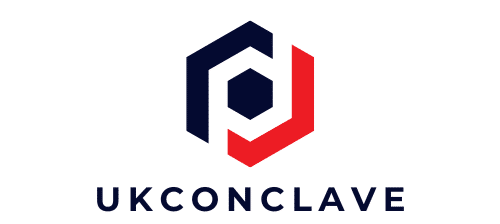What Are the Legal and Ethical Implications of Artificial Intelligence in Real Estate Valuations?

The buzz around artificial intelligence (AI) has reached many sectors and industries worldwide. One such industry that is witnessing a transformation through AI is the real estate sector. AI is now being deployed for different aspects of real estate management, such as predictive analysis, property data management, and estate valuations. While AI has brought about significant efficiency and potential benefits in the real estate market, concerns around its legal and ethical implications cannot be overlooked. This article delves into exploring these legal and ethical implications of AI in real estate valuations.
AI in Real Estate: An Introduction
The real estate industry has always been data-intensive. From property specifications to market trends, a lot of data is collected, evaluated, and analyzed. AI is a game-changer in handling this volume of data. By implementing AI, real estate professionals can speed up data collection and analysis, which in turn can save time and enhance efficiency.
A lire aussi : What Are the Challenges of Real Estate Development on Brownfield Sites with Historic Contamination?
One particular area where AI is making significant inroads is estate valuations. AI-powered systems can generate valuations using predictive analysis based on multiple factors like location, size, condition, and recent sales trends. While this certainly sounds promising, it also raises some serious questions about the legal and ethical repercussions of such technology.
The Legal Implications: A Closer Look
The legal implications of AI in real estate valuations are vast and complex. For a start, the use of AI in property valuations could potentially challenge the current real estate law. The National Association of Realtors (NAR), the leading authority in the real estate industry, has certain rules and guidelines for professionals involved in estate valuations. These rules were established long before AI made its debut in the industry. Therefore, the use of AI could blur legal lines and necessitate the establishment of a new legal framework.
Avez-vous vu cela : What Is the Role of Drones in Enhancing Real Estate Inspections for High-Rise Buildings?
One of the legal questions is about liability. If an AI-powered system generates an inaccurate valuation that leads to financial loss for a party, who is responsible? Is it the AI system, its developer, or the real estate professional who used the system? Furthermore, there are issues related to data security and privacy. AI systems collect and process a vast amount of personal and property data. Any breach or misuse of this data could lead to legal penalties and damage to reputation.
Ethical Concerns in AI-Powered Estate Valuations
Moving away from the legal aspect, there are also ethical concerns that need to be considered in using AI for real estate valuations. One core ethical issue is bias. AI systems are only as good as the data they are fed. If the data is biased, the AI output will also be biased. This could lead to unfair property valuations.
Moreover, there’s a risk of AI systems replacing human jobs in the industry. While AI can improve efficiency, it may also render some positions obsolete which raises ethical concerns around job security and income inequality.
Additionally, transparency is a significant ethical concern. AI systems are often referred to as ‘black boxes’ because their inner workings are not fully understood or explained. As a result, stakeholders may not understand how an AI system arrived at a particular property valuation.
Evolving AI Regulation: An Ongoing Process
To address the legal and ethical challenges presented by AI, the real estate industry must adapt and evolve. Regulatory bodies, such as the NAR, are already beginning to acknowledge the role of AI in the industry and are working towards establishing guidelines and regulations that protect consumers and professionals alike.
Furthermore, governments around the world are taking steps to regulate AI in various sectors, including real estate. For instance, regulatory bodies are working towards establishing laws that ensure transparency, prevent bias, and protect data privacy in AI systems. Moreover, they’re working to clarify issues of liability in cases of AI errors or misjudgments.
However, the evolution of AI regulation in the real estate industry is still an ongoing process. As AI technology continues to advance, the industry will need to continually revise and update its regulations to keep pace.
Balancing AI Benefits with Ethical and Legal Considerations
The use of AI in real estate valuations has the potential to revolutionize the industry. It can offer quicker, more accurate valuations, leading to more efficient transactions and better market trends analysis. However, as with any technological advancement, it is crucial to balance these benefits with thoughtful consideration of legal and ethical implications.
The industry needs to ensure that the use of AI does not infracate on people’s rights, lead to biased outcomes, infringe on privacy, or replace human jobs unfairly. As AI continues to reshape the real estate industry, it is necessary to navigate these challenges carefully, keeping in mind the ultimate goal of creating a fair and efficient real estate market.
The Role of AI in Predictive Analytics and Property Management
Predictive analytics is a crucial facet of property management where artificial intelligence is demonstrating significant potential. AI can gather and analyze vast amounts of data, predict future market trends, and deliver much-needed insights for decision making in real estate. As a result, it’s reshaping the traditional approaches to property management and real estate market analysis.
AI-powered systems can evaluate numerous factors simultaneously, such as property location, size, condition, and market trends, to generate accurate property valuations. This capability is beneficial for estate professionals, who often grapple with these factors to ascertain a property’s value. The faster, more precise valuations provided by AI can lead to quicker transactions and more efficient market operations.
However, as AI becomes more ingrained in the estate industry, it raises some serious questions about its legal and ethical implications. For instance, the issue of data privacy is a significant concern. AI systems rely on collecting and processing large amounts of data, raising concerns about the data’s security and the potential misuse of personal information. Moreover, the potential of AI to replace human jobs has triggered ethical considerations about job security and income inequality.
Navigating the Legal and Ethical Considerations of AI in Real Estate
The integration of artificial intelligence into the real estate sector is not without its challenges. It raises some serious questions about legal liability, data privacy, and the ethical considerations of machine learning. Therefore, it’s necessary for industry stakeholders to preemptively address these concerns and establish a code of ethics for AI use in real estate.
Firstly, the legal conundrum of who bears the liability for inaccurate property valuations generated by AI needs to be addressed. Is it the AI system, its developer, or the estate professionals who used it? This is a question that the state and local laws, as well as estate industry regulations, need to tackle.
Secondly, data privacy is a major concern. The real estate industry, being data-driven, runs the risk of privacy infringements due to the vast amounts of personal and property data it handles. Therefore, mechanisms need to be put in place to ensure data security and prevent breaches.
Finally, the ethical implications cannot be overlooked. Estate professionals need to ensure that AI’s use doesn’t lead to biased outcomes, infringe on privacy, or replace human jobs unfairly. The industry needs to maintain a balance between harnessing AI’s benefits and upholding ethical standards.
Conclusion: The Future of AI in Real Estate
The real estate industry is at the brink of a technological revolution powered by artificial intelligence. AI is transforming every aspect of the industry, from predictive analytics to property management, and particularly in property valuations. While this transformation is filled with potential, the industry needs to tread carefully around the legal and ethical implications of AI.
The issues of liability, data privacy, and ethical considerations pose significant challenges that need to be addressed. However, with careful planning and the establishment of guiding principles, the industry can harness the full potential of AI without compromising on ethical and legal standards.
As AI continues to evolve, so will its role in the real estate sector. Estate professionals need to stay abreast of these changes and adapt accordingly. With a well-planned approach towards integrating AI, the real estate industry can strike the right balance between technological advancement and ethical considerations. The future of real estate lies in embracing the transformational power of AI while keeping the human element intact.
